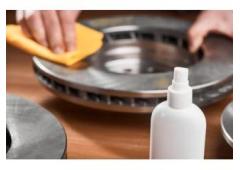Description
Rust inhibitors and corrosion inhibitors are essential compounds used to safeguard metal surfaces from degradation caused by exposure to environmental factors. While they share a common goal of preventing corrosion, they may differ in their specific mechanisms and applications. Here's an overview of rust inhibitors and corrosion inhibitors:
1. Rust Inhibitor:
- Purpose: Rust inhibitors are specifically designed to prevent the formation of rust on metal surfaces, particularly ferrous metals such as iron and steel.
- Mechanism of Action: Rust inhibitors work by forming a protective barrier on the metal surface, preventing moisture and oxygen from coming into contact with the metal and initiating the corrosion process.
- Types: Rust inhibitors may be organic or inorganic compounds, and they can be applied through coatings, treatments, or additives in lubricants, coolants, and other industrial fluids.
- Applications: Rust inhibitors are commonly used in applications where ferrous metals are exposed to moisture or corrosive environments, such as automotive coatings, metalworking fluids, and marine applications.
2. Corrosion Inhibitor:
- Purpose: Corrosion inhibitors have a broader scope, as they are designed to prevent corrosion on various types of metals, including both ferrous and non-ferrous metals.
- Mechanism of Action: Corrosion inhibitors function by forming a protective layer on the metal surface, inhibiting the electrochemical reactions that lead to corrosion. They may also work by adsorbing onto the metal surface or by reacting with corrosion products to form stable complexes.
- Types: Corrosion inhibitors can be organic or inorganic compounds, and they are used in a wide range of applications, including water treatment, oil and gas production, metal finishing, and industrial coatings.
- Applications: Corrosion inhibitors are utilized wherever metals are exposed to corrosive environments, such as pipelines, storage tanks, cooling systems, and industrial equipment.
3. Common Features and Benefits:
- Both rust inhibitors and corrosion inhibitors aim to extend the lifespan of metal structures and equipment by preventing or minimizing corrosion damage.
- They offer cost-effective solutions for protecting valuable assets, reducing maintenance costs, and improving operational efficiency.
- Rust inhibitors and corrosion inhibitors are available in various forms, including liquids, powders, and coatings, making them versatile and adaptable to different applications and industries.
- Regular monitoring and maintenance are essential to ensure the continued effectiveness of rust inhibitors and corrosion inhibitors, as environmental conditions and usage factors may affect their performance over time.
In summary, rust inhibitors and corrosion inhibitors play crucial roles in preserving the integrity of metal surfaces and preventing deterioration due to corrosion. Understanding their mechanisms, applications, and benefits is essential for implementing effective corrosion control strategies and maintaining the long-term durability of metal structures and equipment.














